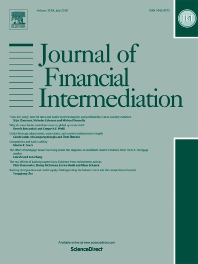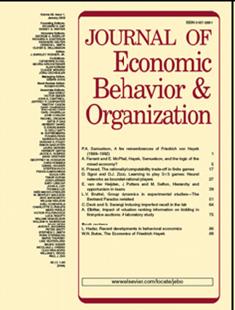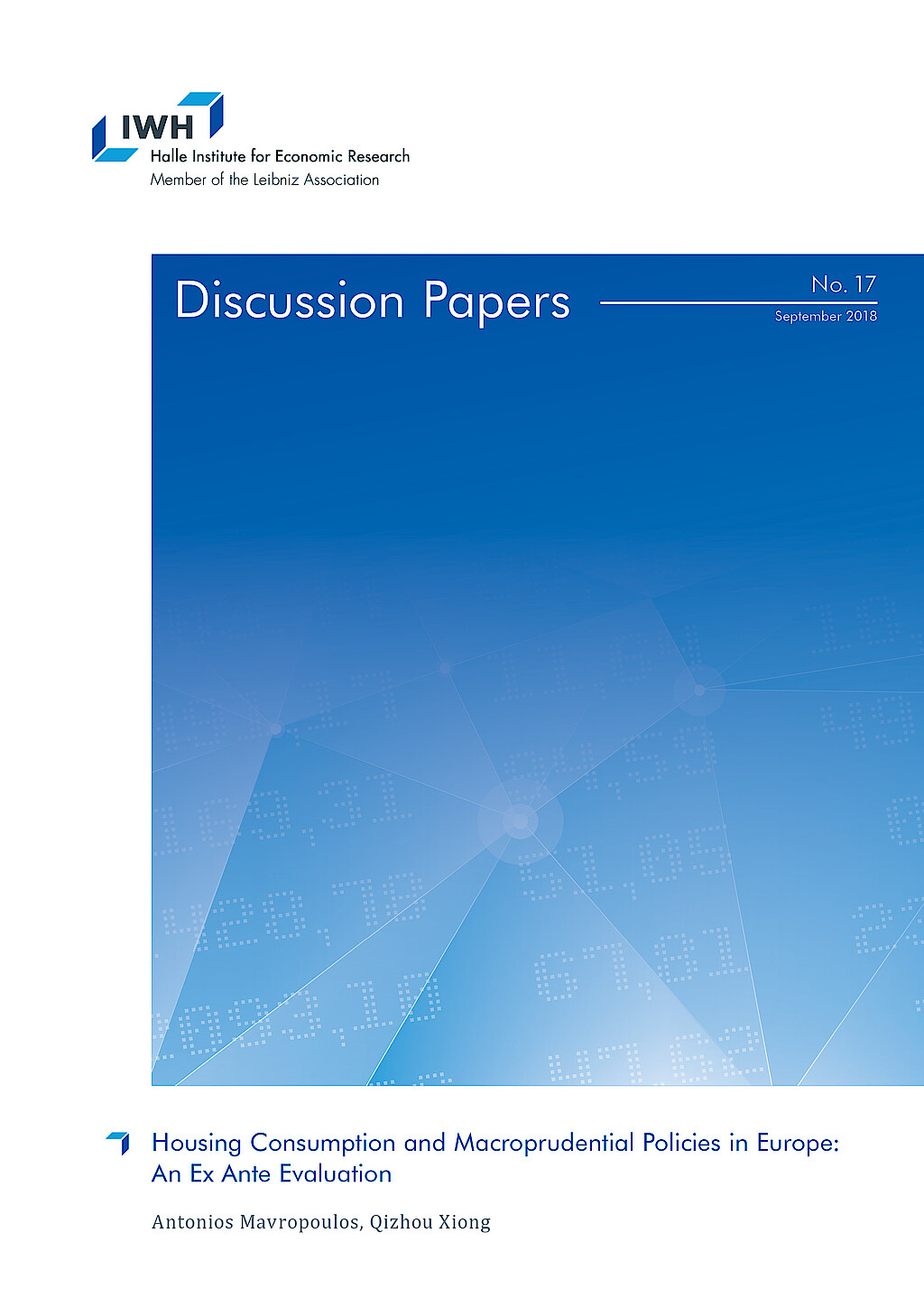Risk Shifting in Financial Markets and Sustainable Finance
The contemporary literature on financial intermediation suggests that banks play an important role in the transition towards a sustainable economy. The research group ‘Risk Shifting in Financial Markets and Sustainable Finance’ contributes to this debate by studying lenders' risk shifting incentives, their choices in supporting sustainable business, and how sustainable finance and legal innovations affect firms and households.
First, we analyze how banks respond to climate transition risks. Specifically, we investigate whether banks manage these risks by offloading loans to environmentally harmful firms or by incorporating sustainability pricing provisions into loan contracts. Our ongoing research delves into the role of banking supervision in facilitating the transition to net-zero, specifically by assessing the impact of climate stress tests on banks' lending practices. We also examine how depositors, firms, and financial institutions manage various forms of biodiversity risk.
Second, we illustrate the choice between risk pricing and risk shifting through securitisation by financial institutions. From a household finance perspective, we discuss how mortgage foreclosure laws and mortgage pricing policies should be designed to mitigate moral hazard of lenders and borrowers. We also highlight the effect of zombie mortgage laws on banks and non-bank lenders, and the implications arising for housing markets.
Another line of research aims to establish evidence of how financial regulation contributes to securitisation booms, which are considered to be at the root of the recent boom and bust cycles in housing markets. Specifically, we shed light on how banking deregulation and financial development increase the probability of a bank operating an originate-to-distribute model in the lead up to the financial crisis that started in 2007.
Finally, the research group investigates the role of financial institutions in supporting firms to mitigate risk from supply chain disruptions triggered by the Covid-19 pandemic.
Workpackage 1: Do financial institutions provide sustainable finance?
Workpackage 2: How do banks choose between risk pricing and risk shifting?
Workpackage 3: The Impact of Banking Supervision and Regulation on Financial Intermediaries
Research Cluster
Financial Resilience and RegulationYour contact

- Department Financial Markets
Refereed Publications

To Securitize or To Price Credit Risk?
in: Journal of Financial and Quantitative Analysis, No. 1, 2023
Abstract
Do lenders securitize or price loans in response to credit risk? Exploiting exogenous variation in regional credit risk due to foreclosure law differences along US state borders, we find that lenders securitize mortgages that are eligible for sale to the Government Sponsored Enterprises (GSEs) rather than price regional credit risk. For non-GSE-eligible mortgages with no GSE buyback provision, lenders increase interest rates as they are unable to shift credit risk to loan purchasers. The results inform the debate surrounding the GSEs' buyback provisions, the constant interest rate policy, and show that underpricing regional credit risk increases the GSEs' debt holdings.

The Effect of Bank Failures on Small Business Loans and Income Inequality
in: Journal of Banking and Finance, January 2023
Abstract
Using variation in the timing and location of branches of failed banks we analyze its effect on income inequality. Employing a difference-in-differences specification we find that bank failures increased the GINI by 0.3 units (or 0.7%). We show that the rise in inequality is due to a decrease in the incomes of the poor that outpaces declines of the rest. We further show that individuals with lower levels of education exhibit a relatively greater decline in real wages and weekly hours worked. Exploring channels of transmission, we find income inequality is explained by a general decline in small business loans. This in turn reduces net new small business formation and their job creation capacity, a sector that hires a substantial share of low-income earners.

Explicit Deposit Insurance Design: International Effects on Bank Lending during the Global Financial Crisis
in: Journal of Financial Intermediation, July 2022
Abstract
Studies find that during the 2007–2009 global financial crisis, loan spreads rose and corporate lending tightened, especially for foreign borrowers (a flight-home effect). We find that banks in countries with explicit deposit insurance (DI) made smaller reductions in total lending and foreign lending, experienced smaller increases in loan spreads, and had quicker post-crisis recoveries. These effects are more pronounced for banks heavily relying on deposit funding. Evidence also reveals that more generous or credible DI design is associated with a stronger stabilization effect on bank lending during the crisis, confirmed by the difference-in-differences analysis based on expansion of DI coverage during the crisis. The stabilization effect is robust to the use of country-specific crisis measures and control of temporary government guarantees.

The Impact of Overconfident Customers on Supplier Firm Risks
in: Journal of Economic Behavior and Organization, May 2022
Abstract
Research has shown that firms with overconfident chief executive officers (CEOs) tend to overinvest and are exposed to high risks due to unrealistically optimistic estimates of their firms’ future performance. This study finds evidence that overconfident CEOs also affect suppliers’ risk taking. Specifically, serving overconfident customers can lead to high supplier risks, measured by stock volatility, idiosyncratic risk, and market risk. The effects are pronounced when customers aggressively invest in research and development (R&D). Our results are robust after addressing self-selection bias and using different CEO overconfidence measures. We also document some real effects of customer CEO overconfidence on suppliers.

The Effect of Foreign Institutional Ownership on Corporate Tax Avoidance: International Evidence
in: Journal of International Accounting, Auditing and Taxation, March 2022
Abstract
We find that foreign institutional investors (FIIs) reduce their investee firms’ tax avoidance. We provide evidence that the effect is driven by the institutional distance between FIIs’ home countries/regions and host countries/regions. Specifically, we find that the effect is driven by the influence of FIIs from countries/regions with high-quality institutions (i.e., common law, high government effectiveness, and high regulatory quality) on investee firms located in countries/regions with low-quality institutions. Furthermore, we show that the effect is concentrated on FIIs with little experience in the investee countries/regions or FIIs with stronger monitoring incentives. Finally, we find that FIIs are more likely to vote against management if the firm has a higher level of tax avoidance.
Working Papers

Housing Consumption and Macroprudential Policies in Europe: An Ex Ante Evaluation
in: IWH Discussion Papers, No. 17, 2018
Abstract
In this paper, we use the panel of the first two waves of the Household Finance and Consumption Survey by the European Central Bank to study housing demand of European households and evaluate potential housing market regulations in the post-crisis era. We provide a comprehensive account of the housing decisions of European households between 2010 and 2014, and structurally estimate the housing preference of a simple life-cycle housing choice model. We then evaluate the effect of a tighter LTV/LTI regulation via counter-factual simulations. We find that those regulations limit homeownership and wealth accumulation, reduces housing consumption but may be welfare improving for the young households.






